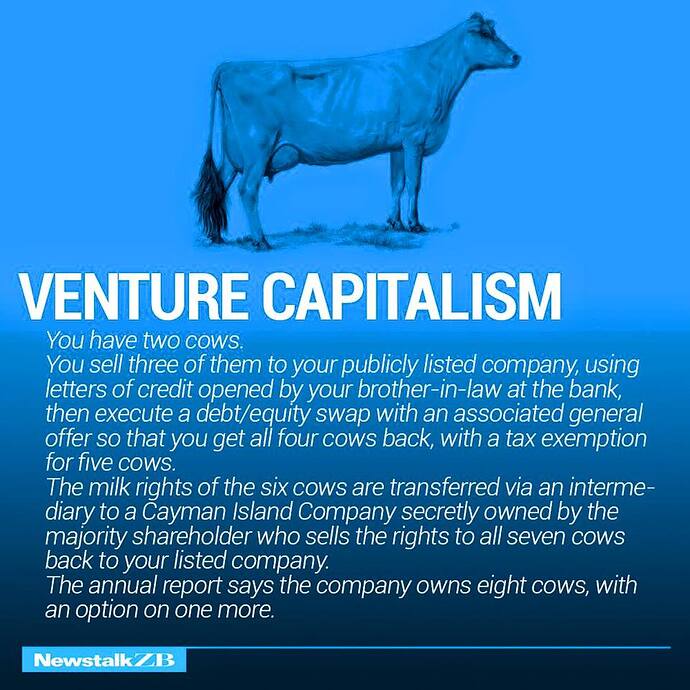Well- it depends on how you look at it. A friend once jokingly referred to VC as wealth redistribution towards young talented people since most ventures tank anyway, especially in winner takes all tech businesses 
Seen from here Human Centred Internet builders need to be human-centred also at the end of the people building and managing businesses in the sector.
I just got back from Techfestival where the response to our ills is to produce a pledge for technologist to change behaviour/adhere to a set of defined values as a means to get us out of this mess:
https://www.techpledge.org/
That is a nice step. But, I don’t know how many of the people who sign it actually operate in organisations that afford them the necessary conditions to do so. .
It really comes down to what you consider to be a healthy business, how you structure your company and the day to day social environment in which live and work.
Edgeryders is a not-for-profit company that generates the money needed to build, sustain and develop the community infrastructure from revenues in no small part thanks to our innovations in digital tech and methodologies for doing various things online. BUT, we have never taken on debt, nor do we allow any VC in because it comes with a lot of strings attached - and would force us to have an extractive sustainability/business model.
Sometimes I ask myself why I didn’t take the path of my contemporaries. Founders of several startups you heard of - soundcloud, prezi etc came out of one Alma Mater and know one oner socially. You had some obvious choices if you wanted to make money - go into telecoms, military-industrial or…internet business. Many went full on build tech startups where you make money if and when you make an exit. Perhaps it really comes down to personal history.
I come from a setting where business = old school trade and debt=bad. As in: Running a “real” and “honest” business is = generating more revenue from people paying to buy your wares than the costs you have making them. Of course this limits the rate at which your business and revenue can grow, but I am cool with it. Also because growth carries costs additional costs on your health, your relationships etc.
My primary moral compass is trying to do good by and care for the wellbeing of people whom I love - not some higher moral standard. This includes all of my business partners, many people in our community. I very much value the sense of being part of a new kind of caring tribe enabled by connectivity - even if people’s ideologies and ideas diverge I feel there is a kind of “thread” that that weaves us together. To me building a good business is building a next generation institution which can act as an anchor for a lot of people in a messy, turbulent world. Financial but also social. It is fragile, yes. But it has been around for longer than most tech “startups”.
At techfestival in Copenhagen I ran into someone who has been loosely present in Edgeryders, and who convened a large known community. He said that we were one of few communities to still be around after that wave of sharing/gift economy movements (that came out of the financial crisis).
